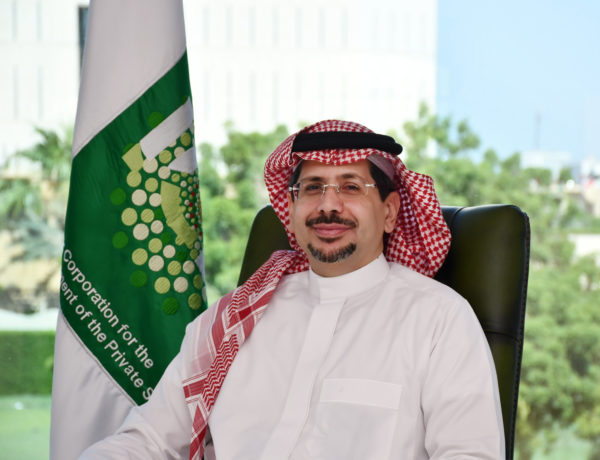The Islamic Corporation for the Development of the Private Sector (ICD) is at the Islamic Development Bank (IDB) what the IFC (International Finance Corporation) is at the World Bank. It is the reference instrument of the Islamic Bank Group dedicated to financing and supporting the private sector. In this exclusive interview, ICD CEO Ayman Sejini, who has been in office since October 2018, strives to establish the institution instead of Africa.
What private sector areas will ICD be focused on?
ICD’s priorities will continue to be guided by the IDB Group’s 10-year Strategy for Private Sector Development. These include the following four key areas:
- Developing Islamic financial channels to create multiplier impact including SME Development
- Providing advisory services relating to development of Islamic financial institutions and Sukuk issuance
- Providing finance for investments in high impact sectors
- Working in partnership with IDB Group and other multilateral development banks to optimize resource mobilization
Under its Business Plan for 2019-2021, which is scheduled for Board consideration later this year, ICD will continue to focus its operations on the financial sector, while allocating more resources to increase its assistance in the infrastructure sector.
Are there any areas you believe can be strengthened and/or improved in terms of ICD operations?
To better respond to the fast growth in Islamic finance in member countries, ICD needs to effectively mobilize long term capital resources, which, in turn, requires continued focus on safeguarding ICD’s financial strength through prudent risk management, robust governance, and efficient business processes.
In addition, in response to ever-changing private sector requirements in member countries, ICD is planning to decentralize its deal sourcing activities to concretize potential opportunities in the named countries. In this regard, ICD has been actively participating in the IsDB-led “Gateway Office Project”, which envisions establishing new regional offices in different regions during the next three years.
- Islamic finance starting to be adopted more widely in Africa?
Islamic finance should grow further in Africa by working within new potential markets and through financing development projects in both emerging and developed markets. To better respond to the fast growth in Islamic finance in member countries in Africa particularly, ICD needs to effectively mobilize long term capital resources, which, in turn, requires continued focus on safeguarding ICD’s financial strength through prudent risk management, robust governance, and efficient business processes.
ICD has plans to spur the development of SMEs in Sub-Saharan Africa. ICD has long had an ambitious series of projects, applying Islamic finance principles, to African infrastructure needs.
For sure, Africa is a potential market for ICD. Africa critically needs to achieve its development goals by implementing more infrastructure investment, roads, housing, schools and hospitals.
ICD puts great efforts to become responsive to the emerging challenges in member countries by creating new employment opportunities. Employment growth, which is positively and significantly associated with GDP growth, is a vital mechanism for improving income distribution and sustainable reduction in poverty.
We have heard of the possibility of ICD issuing sukuk in regional exchanges, is that a possibility?
Traditionally, ICD has been financing private sector projects in Member Countries in US Dollars and more recently we have started disbursing in Euro. Given the recent volatility in global financial market, especially weakening of exchange rates in our member countries against US Dollar, we are actively considering mobilizing funds in local currencies in order to invest in the same currency in our member countries in order to protect the end beneficiaries from adverse foreign exchange movement. The mobilization can be done via public or private sukuk issuance, or bilateral transactions. The Sukuk we expect to issue in local currency may be listed in regional exchanges depending on the available infrastructure in that jurisdiction. Therefore, going forward, in addition to mobilizing USD or Euro funding, we will look into raising funds in the local currencies in our Member Countries. Against this background, we stand ready to collaborate with more member countries in issuing their debut Sukuk.
The ICD has made notable contributions to the development of the Sukuk market in the BCEAO countries, which has issued six sovereign Sukuk to date, which were arranged by the ICD. How important is this and are there any such issuances in the pipeline?
Playing a role in developing the Islamic capital markets is one of ICD’s key missions throughout its member counties. A sovereign issuance paves the way for corporates in our member countries to follow suit. We envision this to occur going forward and ICD wants to identify potential issuers in these member counties. Of course, continuing to advise member countries on their Sukuk issuances is also of great importance and identifying countries in MENA, Africa and CIS regions which are ready for such issuances is a priority. In this regard, ICD is looking to replicate its experience with the Hashemite Kingdom of Jordan in 2016, where it advised the government on issuing a local currency medium term Sukuk. In addition, ICD is exploring opportunities to issue local currency Sukuk in its member countries to act as a catalyst for investments in the countries.



